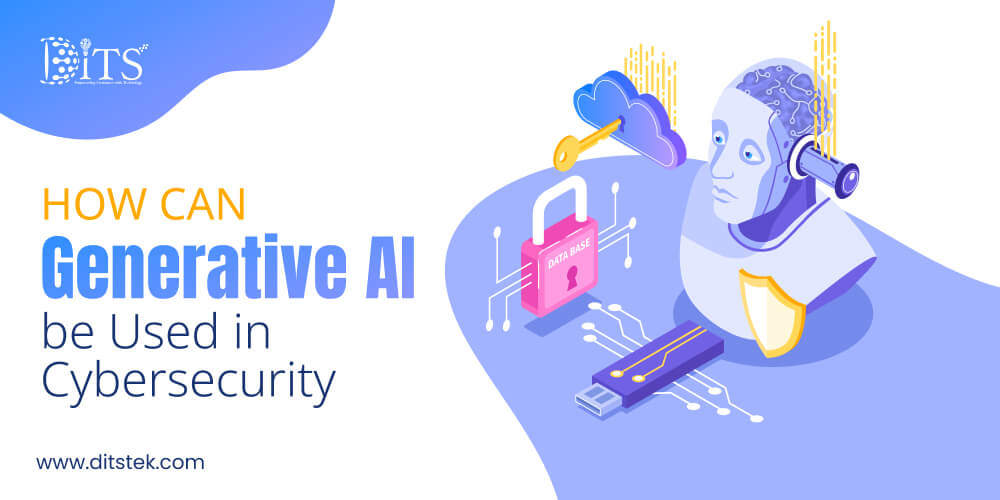IoT Fleet Management Use Cases and Advantages
Table Of Content
Published Date :
30 Jan 2026
What If tracking your complete fleet is neither complicated nor time-consuming but simple and convenient? Whether you are a fleet manager trying to modernize or just interested in what to expect next in the transportation industry, you must know how the Internet of Things can help with fleet management. The emergence of IoT is revolutionary because it provides the ability to view a fleet in real-time, streamline operations, and improve your fleet's efficiency, safety, and sustainability.
In this post, we will explain fleet management and how the Internet of Things is making it simple, convenient, more efficient, and secure.
What is IoT Fleet Management?
Fleet management using IoT is a data-driven approach to managing vehicle or asset fleets. The Internet of Things (IoT) connects smart devices to create a data-driven and systematic way to aggregate and analyze data from a vehicle or asset fleet. This overall tracking approach to track things like vehicle location (GPS), fuel consumption, vehicle condition, driver behavior (safety), and operational metrics enables fleet managers to take advantage of various benefits, such as route optimization, maintenance, fuel cost saving, driver safety, and overall operational performance.
How IoT Fleet Management Works?
IoT fleet tracking systems use GPS technology and internet connectivity to monitor the real-time positioning and status of fleet vehicles. GPS devices installed in vehicles, transmits positional data to fleet managers who can use this information to access the location of vehicles on web or mobile applications. Fleet tracking systems can even collect the data of speed or fuel consumption and maintenance status of each fleet vehicle, and they will often complement other technologies such as cameras and sensors to provide deeper business intelligence.
If You Move Things, We Make It Smoother!
From trucking tycoons to courier kings, our IoT software simplifies dispatch, tracking, and maintenance.
IoT Fleet Management Components
A fleet management system powered by IoT contains the following fundamental components:

- Sensors: These are placed within vehicles to collect data on engine performance, tire pressures, fuel levels, and driver behavior.
- GPS Trackers: These provide vehicle location information in real-time, which is essential for route optimization, a geo-fencing capability, and tracking cargo theft.
- Telematics Systems: These aggregate the data from the sensors and GPS trackers to give an overall picture of vehicle and driver performance.
- Communication Networks: These transmit the data collected from the vehicles to a central management system through cellular, satellite or other wireless communications.
- Data Analytics Platforms: These analyze the incoming data and give fleet managers valuable insights on maintenance scheduling, route optimization, fuel management, and compliance management.
IoT Fleet Management Use Cases

The Internet of Things is used for fleet management in various areas. Here are some applications where IoT helps manage vehicles and assets to make transportation operations simple and convenient.
Smart Vehicle Routing and Tracking
Based on a particular driver's location and configuration of a delivery schedule, driving from one point to another according to the traffic situation seems to be an optimized approach for fleet managers. It helps fleet managers achieve operational efficiency with reduced fuel consumption and faster delivery of goods. Moreover, such vehicle tracking tells the exact vehicle location and status, which improves asset security and accountability.
Vehicle Maintenance
IoT uses onboard sensors, to monitor key vehicle health parameters, which helps predict impending mechanical failures, allowing timely maintenance, to avoid costly downtime and repair costs. IoT data can further be used to optimize intervals between maintenance activities based on actual vehicle usage, which avoids unnecessary servicing of vehicles.
Automating Tasks and Processes
IoT-enabled fleet management systems automate tasks that were done manually, including driver logs, maintenance schedules, and fuel consumption and location tracking, thus generating high operational efficiency. Automated workflows further streamline procedures for dispatching, route planning, and resource allocation while minimizing administrative overhead and human error.
Engine Performance and Fuel Efficiency Insights
Complete data on engine parameters, fuel consumption patterns, and driver behavior allows an organization to identify the inefficiencies in operations and take necessary measures for its optimization. This consists of recognizing vehicles that function under par, instilling fuel-efficient behavior in drivers, to conserve fuel. Analyzing this information leads to a significant decrease in fuel expenditure, less emission into the environment, and extended engine life of vehicles.
Improved Delivery Management
IoT fleet management provides real-time insights about the location of vehicles, traffic situation, and updates on delivery schedules. This makes it perfectly possible for highway police and supervisors to make adjustments in delivery routes. IoT helps fleet managers to assign deliveries for maximum efficiency, and give reliable time estimates to customers. The result is great customer satisfaction, faster delivery times, and lower operational costs.
Intelligent Driver Monitoring for Safety
IoT fleet management systems employ sensors that continuously monitor driving parameters such as speed, braking behavior, and acceleration patterns. This allows organizations to work proactively in the correction of risky driving behaviors. Real-time alerts can be sent to the driver; thus, which allows them to take corrective action immediately. Moreover, through activity analysis on historical driver data, targeted training programs can be designed to improve safety performance.
Higher Customer Satisfaction
Better delivery times, optimized route efficiency, and real-time order tracking make for a much better service experience for customers. Further, with predictive maintenance and efficient communication systems at hand to provide early resolutions to issues, the potential to delay will be less and will minimize customer disappointment, thereby boosting customer satisfaction and brand loyalty.
Maintain Regulatory Compliance
By capturing information on vehicle emissions, driving hours, and maintenance records, companies can ensure compliance with environmental and safety regulations. Organizations with IoT-enabled systems will have real-time visibility of compliance metrics and be able to generate automated reports, which reduces the chances of substantial non-compliance penalties.
Proactive Fleet Management
Organizations with good analytics capabilities can draw on sensor data about engine performance, tire pressure, and other variables to preemptively alert mechanics of possible mechanical failures. This type of predictive maintenance results in less vehicle downtime, longer life of the fleet, and lower maintenance costs. When repairs and adjustments are scheduled in the right way, fleet availability, vehicle utilization, and overall operational efficiency increase.
Deliver More. Worry Less. Sleep Better!
DITS helps logistics businesses streamline operations, slash downtime, and keep deliveries right on schedule.
Benefits of IoT in Fleet Management
IoT fleet management systems share data between vehicles and fleet managers to improve fleet visibility, productivity, and maintenance. IoT offers several benefits to transportation service providers, service stations, insurance companies, and passengers. Let's go through some of the benefits of using IoT for fleet management.

Savings
IoT helps protect your vehicles and monitor their health to prevent any unforeseen breakdowns or circumstances. By choosing optimum routes and predictive maintenance, IoT helps you save thousands of liters of fuel. It also protects your goods and cargo by recognizing perishable products. Logistics and transportation companies can save considerable money as IoT device management helps minimize the wastage of fuel and other resources.
Cloud Connectivity
IoT offers fast data processing by connecting all smart devices through the cloud. Connectivity to the cloud also provides sufficient memory for computing the massive data involved in transportation operations.
Visibility
In logistics and transportation, the success of every process depends on data, and IoT provides meaningful data for decision-making. Accurate data analysis and cargo tracking can improve overall business visibility. Continuous and precise monitoring of vehicles, derivers, and other support crew ensures the safety of cargo and real-time visibility of every other process involved in transportation.
Efficiency
IoT helps you run logistics and transportation operations more efficiently by optimizing routes, saving fuel, scheduling vehicle maintenance, and tracking cargo in real time. Also, the data from IoT devices helps managers with time management, process scheduling, and task automation, which in turn improves operational efficiency.
Manageability
IoT helps managers run operations more efficiently. By monitoring fleets, drivers, and operations with real-time data, it becomes easy to manage every process involved in transportation. For passenger fleets, IoT helps track commuter counts, maintain surveillance, and analyze ticketing to ensure the fleet, including every individual, is on the right track.
Technologies Used for Fleet Management
Here’s what actually makes an IoT-enabled fleet management system work.
GPS Tracking Technology
GPS is the backbone of fleet visibility. It enables real-time vehicle location tracking, route monitoring, and geo-fencing. Fleet managers can see where every vehicle is, where it’s been, and where it’s heading.
This technology plays a critical role in:
- Route optimization
- Theft prevention
- Accurate ETAs
- Asset accountability
- Telematics Systems
Telematics combines GPS data with vehicle diagnostics to give a complete picture of fleet health and performance. It collects information such as engine status, mileage, fuel usage, idle time, and driving behavior, all in one place.
IoT Sensors and Onboard Devices
Sensors installed inside vehicles collect real-time data on:
- Engine performance
- Tire pressure
- Fuel levels
- Temperature (especially critical for cold-chain logistics)
- Harsh braking, acceleration, and speeding
This data feeds predictive maintenance models and safety monitoring systems, helping teams act before small issues become expensive problems.
Cloud Computing
Fleet management generates massive volumes of data every day. Cloud platforms store, process, and synchronize this data across devices, dashboards, and locations.
Cloud connectivity allows:
- Real-time access from anywhere
- Scalable data storage
- Faster analytics and reporting
- Seamless software updates
Without the cloud, fleet intelligence stays fragmented.
Data Analytics and AI
Raw data is useless unless it’s analyzed. Analytics platforms turn IoT data into insights, highlighting inefficiencies, predicting failures, and identifying patterns in fuel usage or driver behavior.
When AI enters the mix, fleet systems can:
- Predict maintenance needs
- Recommend optimized routes
- Flag risky driving patterns
- Improve long-term operational planning
This is where fleet management shifts from reactive to proactive.
Mobile and Web Applications
User-friendly dashboards make fleet data usable. Through web and mobile apps, fleet managers, supervisors, and even drivers can access:
- Live vehicle tracking
- Maintenance alerts
- Delivery updates
- Compliance reports
Communication Networks (Cellular & Satellite)
Reliable connectivity keeps everything moving. Fleet systems rely on cellular networks (4G/5G) for urban operations and satellite communication for remote or cross-border routes.
These networks ensure uninterrupted data flow between vehicles and central systems, even in challenging terrains.
Why Choose DITS for IoT Fleet Management Software Development
At Ditstek Innovations, we have built various IoT solutions for different businesses. Our custom software development team has years of expertise and experience in building robust IoT software for businesses in different industries.
We offer IoT Fleet management software building services for transportation and logistics businesses. DITS also provides IoT software solutions to other businesses that need to use IoT for fleet management. Whether you run a transportation, logistics, or any other business that involves moving goods or cargo across cities, we have a solution for you. Our IoT fleet management solutions streamline your daily tasks, optimize operations and routes to save time, cut costs, and improve efficiency in every operation your company handles.
So, why go anywhere else when you have an expert in IoT and AI software development by your side? Contact us now to learn more about our custom IoT fleet management software development services.
Your Fleet’s Brainpower Starts with Our Code!
We don’t just connect devices - we craft the digital command center your fleet deserves.
Conclusion
The infusion of IoT into fleet management represents a sharp rise in operational efficiency and decision-making. IoT fleet management offers real-time data and automation to obtain great control over machines and drivers. It's no longer a future concept; it is an urgent need for any company looking to reduce costs, improve safety, and channel growth through connectivity issues. With such insights, smarter and proactive logistics and maintenance solutions are designed for more efficient and profitable fleet management.
FAQs
How does IoT enhance fleet management?
IoT transforms fleet management by providing real-time vehicle location, performance, and driver behavior data through connected sensors and devices. This enables better decision-making, optimized routes, predictive maintenance, and improved safety, increasing efficiency and reduced operational costs.
What are the key features of an IoT fleet management software?
Key features typically include real-time GPS tracking, fuel consumption monitoring, engine diagnostics, driver behavior analysis, route optimization, geo-fencing, maintenance scheduling, and comprehensive reporting dashboards accessible via web and mobile applications.
How can IoT help in reducing fleet operating costs?
IoT helps reduce costs by optimizing routes to minimize fuel consumption, proactively identifying maintenance needs to prevent costly breakdowns, monitoring driver behavior to encourage fuel-efficient driving, and improving vehicle utilization.
Is data security a concern with IoT fleet management?
Data security is the most important in IoT. Reputable IoT fleet management solutions employ robust security measures, including data encryption, secure communication protocols, and access controls, to protect sensitive fleet data from unauthorized access and cyber threats.
What is the return on investment (ROI) of implementing IoT fleet management?
The ROI can be significant and is typically realized through fuel savings, reduced maintenance costs, improved vehicle uptime, enhanced driver productivity, lower insurance premiums (in some cases), and better overall operational efficiency. The exact ROI depends on the size and nature of the fleet and the effectiveness of the implemented solution.

Dinesh Thakur
21+ years of IT software development experience in different domains like Business Automation, Healthcare, Retail, Workflow automation, Transportation and logistics, Compliance, Risk Mitigation, POS, etc. Hands-on experience in dealing with overseas clients and providing them with an apt solution to their business needs.
Recent Posts

Learn how generative AI enhances cybersecurity through intelligent threat detection, automated incident response, predictive risk modeling, and embedded security within modern enterprise systems.

AI in agriculture helps improve efficiency, soil health, crop production and reduce costs by up to 30%. Read our blog to know in detail.

Looking to outsource your next project? Learn how to outsource software development without sacrificing quality. Find the right team, avoid pitfalls, and boost project success.